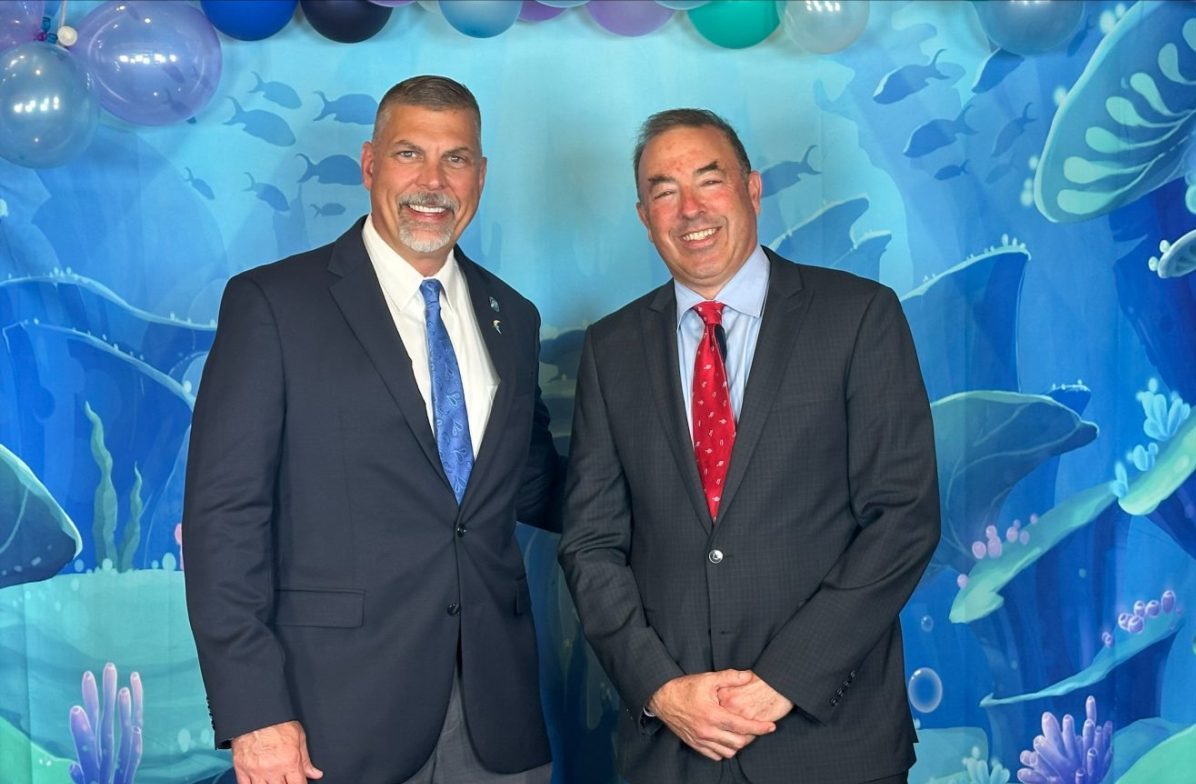Florida Tech, East Coast Zoological Foundation Partner for Lagoon Research Group at New Aquarium
University Will Manage Consortium of Aquarium Researchers and Educators
MELBOURNE, FLA. — Florida Tech will partner with the East Coast Zoological Foundation to lead a new university consortium for lagoon research at the foundation’s planned aquarium and conservation center at Port Canaveral.
The Consortium of Aquarium Researchers and Educators (CARE) will focus on raising awareness of estuarine environments and the threats they face and creating improvements in the Indian River Lagoon and similar ecosystems. To be based at the aquarium’s Dr. Duane De Freese Coastal Conservation Hub, it will bring together multiple disciplines and diverse perspectives to work collaboratively to address critical ecosystem threats and to pursue solutions to help restore the Indian River Lagoon (IRL).
Florida Tech will manage CARE as the primary university and will invite and partner with other universities and organizations, researchers and scientists. Together they will share ideas and solve problems at this dedicated space in the new aquarium, which the East Coast Zoological Foundation will operate along with its existing Brevard Zoo campus.
“Home to the Indian River Lagoon Research Institute and a remarkable history of scholarship and research on the IRL, Florida Tech is uniquely qualified and honored to lead CARE,” said Florida Tech President John Nicklow. “We are excited to work with the East Coast Zoological Foundation to develop CARE into an effective, community-driven educational and research initiative that also complements and deepens the amazing aquarium experience that will be all around it.”

The partnership will also provide hands-on STEM opportunities for students and citizen scientists and offer applied science workshops for teachers to help integrate lessons into their classrooms. CARE will introduce the future aquarium’s estimated 500,000 annual guests to critical estuary restoration and conservation efforts while spotlighting Florida as a higher education destination.
ECZF and Florida Tech have years of fruitful collaboration. They constructed an oyster reef and a living shoreline demonstration site, have conducted research on IRL seagrass and are working together to create and study buffer zones to stem pollution and algae blooms. Upcoming research will investigate the importance of sediment quality towards seagrass recovery at sites in the Banana River Lagoon and working with partners, researchers will utilize the zoo’s seagrass nursery to delve deeper into the ecology of seagrasses. Together, among the other endeavors, Florida Tech, ECZF and other partners are researching ecosystem-level impacts of eutrophication and hypoxia – when oxygen levels are extremely low – in the lagoon.
“We have a long history of working with Florida Tech through previous partnerships at Brevard Zoo, so including the future aquarium is a natural next step,” said Keith Winsten, CEO of the East Coast Zoological Foundation. “Our combined strengths will amplify our efforts and create more advocates and environmental stewards. Together, we will make a difference for the Indian River Lagoon, marine life, sustainability, continued education and technological advancement.”
Duane De Freese, the executive director of the Indian River Lagoon National Estuary Program, two-time Florida Tech graduate and Aquarium Conservation Hub namesake, said, “CARE is the right research partnership at the right time for the aquarium, the Indian River Lagoon and the higher education and research efforts led by Florida Tech. The world-class facilities envisioned at the aquarium will create a host of opportunities for universities and our partners to work together to restore and protect the IRL, an estuary of national significance.”
Austin Fox, assistant professor in ocean engineering and marine science and Florida Tech’s principal investigator in the research collaborations with Brevard Zoo, is helping to lead the CARE program.
He said CARE will allow for the advancement of scientific knowledge while also helping to provide data and develop techniques that will make future restoration more impactful.
“We are excited for the aquarium to be that hub where researchers and educators can work together to improve our understanding of this critical ecosystem,” Fox said.
For more information on this new partnership, visit www.floridatech.edu/care or email president@fit.edu.





